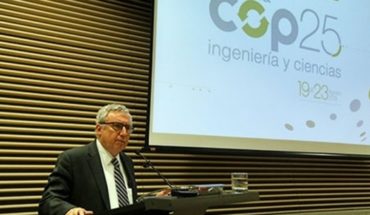
Usa.- People whose parents divorced as children have substantially lower levels of oxytocin, the so-called “love hormone,” and that may explain their own difficulties in forming lasting relationships, a recent study suggests. Baylor University’s study is “a first step in understanding how oxytocin during stressful events in young people may be related to their future,” said lead author Maria Boccia.
Stay informed about what matters most to you
Get the most relevant news of the day in your e-mail
Thank you for subscribing!
Check your inbox to confirm your email and start getting the latest news
Take advantage and take the next step
Get our news alerts so you don’t miss anything
Receive notifications
Not bad! You’ve subscribed to notifications
Set up and choose your preferences
Set up notifications
Enter your e-mail
Subscribe
Subscribing involves accepting the terms and conditions
Not bad! You’ve subscribed to notifications
Set up and choose your preferences
Oxytocin is a neurohormone produced in the pituitary, a small bean-shaped gland deep in the center of the brain.
As an addition, it is known that a predictor of divorce is having parents who are also divorced. Pixabay
It’s called the “love hormone” because it’s released during bonding experiences, such as giving birth and breastfeeding a baby, snuggled up with a child, or hugging a romantic partner, reinforcing those behaviors with that warm, fuzzy feeling. Baylor’s study, published in the Journal of Comparative Psychology, adds to understanding how early, the stress of parents, and the suppression of oxytocin that may result, could also be related to adult outcomes.
What we found was that oxytocin was substantially lower in people who experienced divorce from parents compared to those who didn’t, Boccia said.
Children with divorced parents experience some trauma and deficiencies in social ability. Pixabay
The 128 subjects in the study filled out questionnaires asking about their parents and peers during childhood, including their memories of affection and feeling protected or abused. The questionnaires also asked about their current levels of trust, discomfort with closeness, need for approval, and styles of relationships and care. Urine samples were then collected from subjects and tested to determine oxytocin concentration.
Levels were substantially lower in people whose childhood experience included their parents’ divorce, the university said in a statement about the study.
Cohabitation after divorce usually falls to the mother for parental authority. Pixabay
“Those who experienced parents’ divorce during childhood were less confident, more uncomfortable with closeness, and less confident in relationships,” the statement said.
They rated their own style of care as less sensitive and close than participants whose parents had not divorced.
Previous studies of people whose parents divorced, or who experienced the death of one of their parents, during their childhood also found links to depression, anxiety and substance abuse, the researchers noted. You May Be Interested: Experts Say California Fires Grow More Than EverAdolescent Learns to Drive While Fleeing Fire in California Trump and Biden Election Campaigns Receive CyberAttacks: Microsoft





